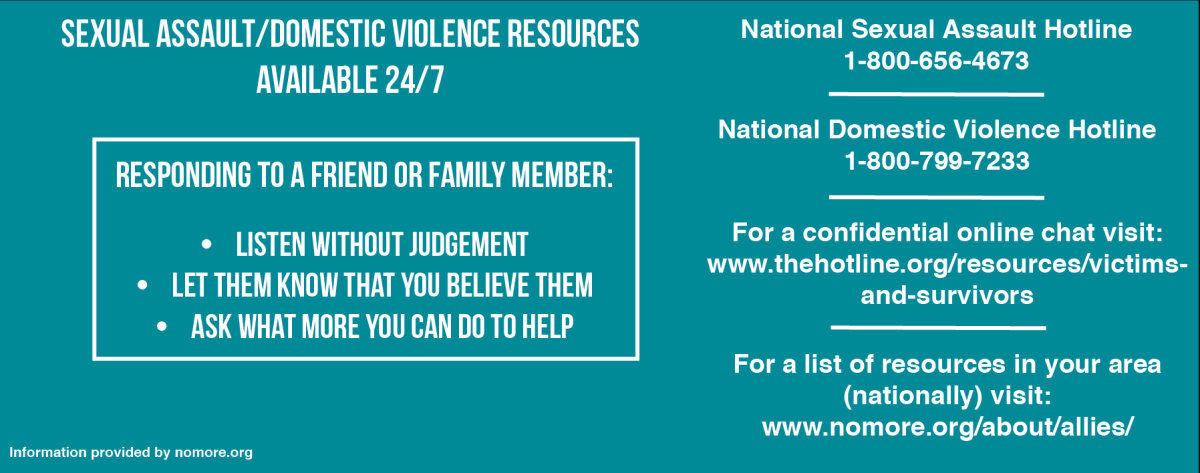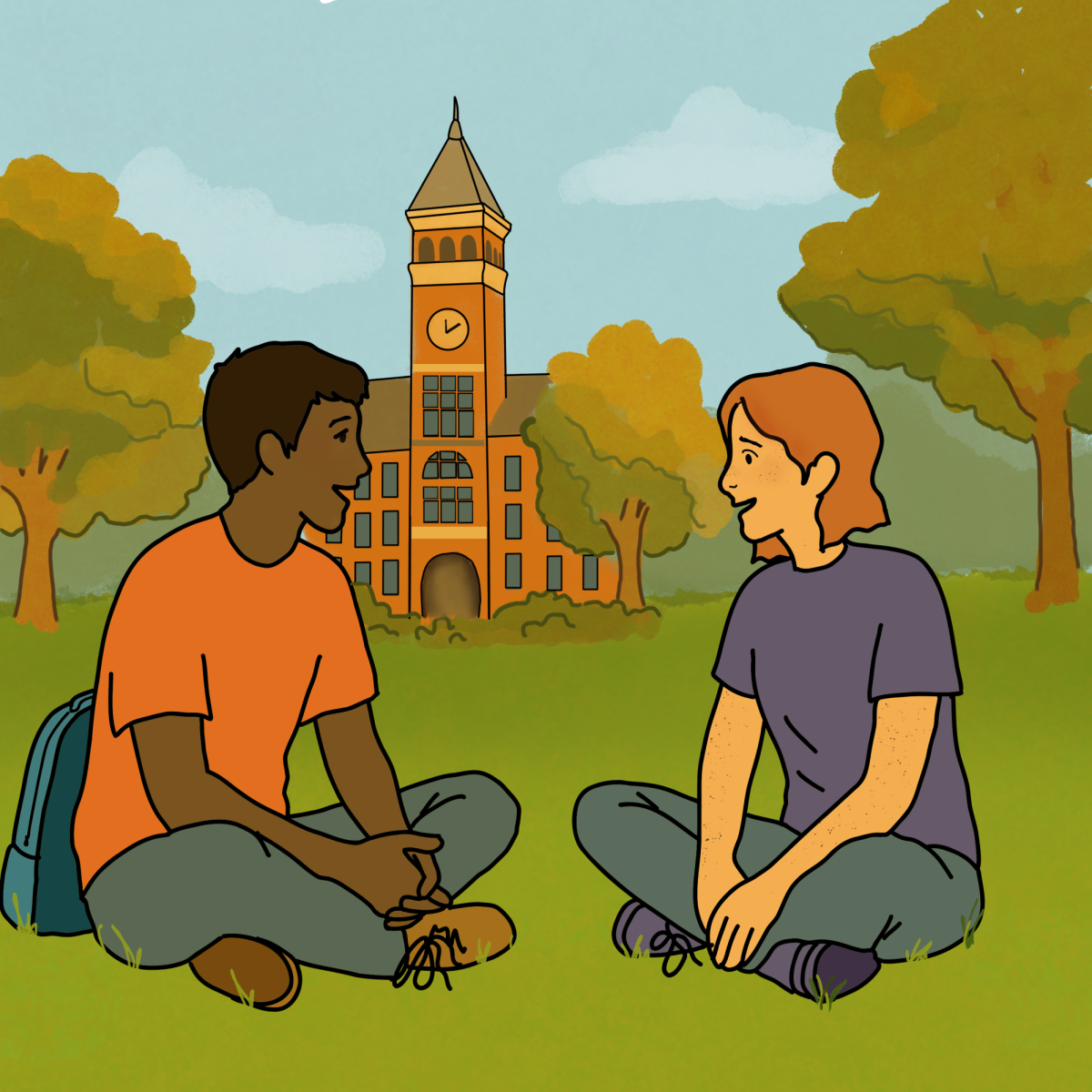*Warning: The following stories include graphic information and may be triggering.*
One in five women are survivors of rape. One in four women are sexually assaulted during their time as an undergraduate. One in three women experience sexual assault or domestic at some point in their lives. Finally, one in two women have experienced some form of sexual violence in their lifetime.
These statistics are from The NO MORE Campaign, and they are shocking.
You likely saw the #MeToo trend that took over social media recently. My feed was flooded with those two words.
The stories I read chilled me and often stayed in my head non-stop for hours. I didn’t realize when I began this project that I would begin to see this issue so many times and in so many places, but now it’s something I can’t shake.
I kept thinking about this issue of violence against women, of rape and sexual assault and of domestic violence and physical abuse.
I kept thinking about how often women who come forward aren’t believed or are slut-shamed or told they’re just trying to ruin some guy’s reputation or because they regretted having sex with them.
I thought about the number of times domestic violence victims are blamed for their situations because “why don’t they just leave?”
I remembered myself at nine years old realizing what was happening to my mom, even though I didn’t know the name for it at the time. I remembered so many of the fears I had growing up whenever I left the house, worried about what I would come home to find.
I thought about the stigma surrounding these women, and about the nauseating numbers I shared earlier.
I decided to talk with some survivors of domestic violence and sexual assault, to ask them questions and to hear their stories, and to talk to a domestic violence counselor to get her perspective.
Rachel was a sophomore in college when she was sexually assaulted by a guy she considered one of her closest friends.
She was given a drink that she did not finish, because she said she began to feel weird. She remembered enough to know what happened to her, and said as time went on she continued to remember more pieces of the night.
After the assault she said, “I called my boyfriend, and he wasn’t answering. It was late at this point. I was texting my friends, ‘SOS.’ That was my fight or flight … I didn’t know what else to say because I was so scared to admit what happened. My head was spinning.”
When she told her boyfriend what had happened, he became angry and broke up with her saying that she had cheated on him — and he wasn’t the only one who accused her of cheating. Mutual friends of theirs also accused her of cheating.
“Now I call myself a survivor, but before I was a victim,” she said. “A victim is someone who is still trying to justify what happened and why. Once they have realized that it’s not their fault and that they were a victim, then they become a survivor.”
Rachel believes sexual assault is so prevalent today because so many people are afraid to talk about it, and that’s why she shares her story.
“People hear the words ‘sexual assault’ and just turn their heads … People aren’t educated,” she said, “They think it’s just when you get snatched in an alley and assaulted behind bushes … every woman that I have seen has known the person they were assaulted by.”
“I think the education really needs to be stepped up, and people need to stop being so blind towards it,” she said.
Kristie Cohens, a counselor from Safe Harbor, said that domestic violence is more than just physical.
“There’s psychological abuse … of course, there is sexual abuse, spiritual abuse, economic abuse — all of those things play a major role in that domestic violence piece … so it doesn’t mean that they just have to have a black eye.”
When asked why she believes this issue is so prevalent, Ms. Cohens cited issues such male privilege in society, the misquoting of religious text, and the idea that men should dominate women who are often seen as lesser in society.
She says it is so common for women to blame themselves for the attack because of the manipulation of the abuser.
“Psychological abuse is to invoke shame, guilt, and fear … We’re creatures of habit. You constantly hear [the manipulation], you internalize that, and you begin to believe that,” she said.
When asked what we can do to combat this issue she said,
“I really believe that there’s work for all of us to do, so I would encourage someone if anything that I’ve said hits in any way, reach out. See how you can help. It doesn’t have to be on a huge scale … because regardless of where you are — whether go you go to school, you go to church, wherever you are. Believe me. Domestic violence is in your midst somewhere.”
For the women reading this article, Ms. Cohen said,
“That as much as you feel alone, you’re not alone. There’s so many survivors, there are more people in the world who have experience with it, who have been victims, are victims of domestic violence — regardless of what he said. Reach out. Reach out because help is available.”
Read the following two interviews where Kelsey Morgan talks to survivors of sexual and domestic violence.
Categories:
From victims to survivors: stories and statistics
Kelsey Morgan, Contributor
October 30, 2017
0
Donate to The Tiger
Your donation will support the student journalists of Clemson University. Your contribution will allow us to purchase equipment and cover our annual website hosting costs.
More to Discover








